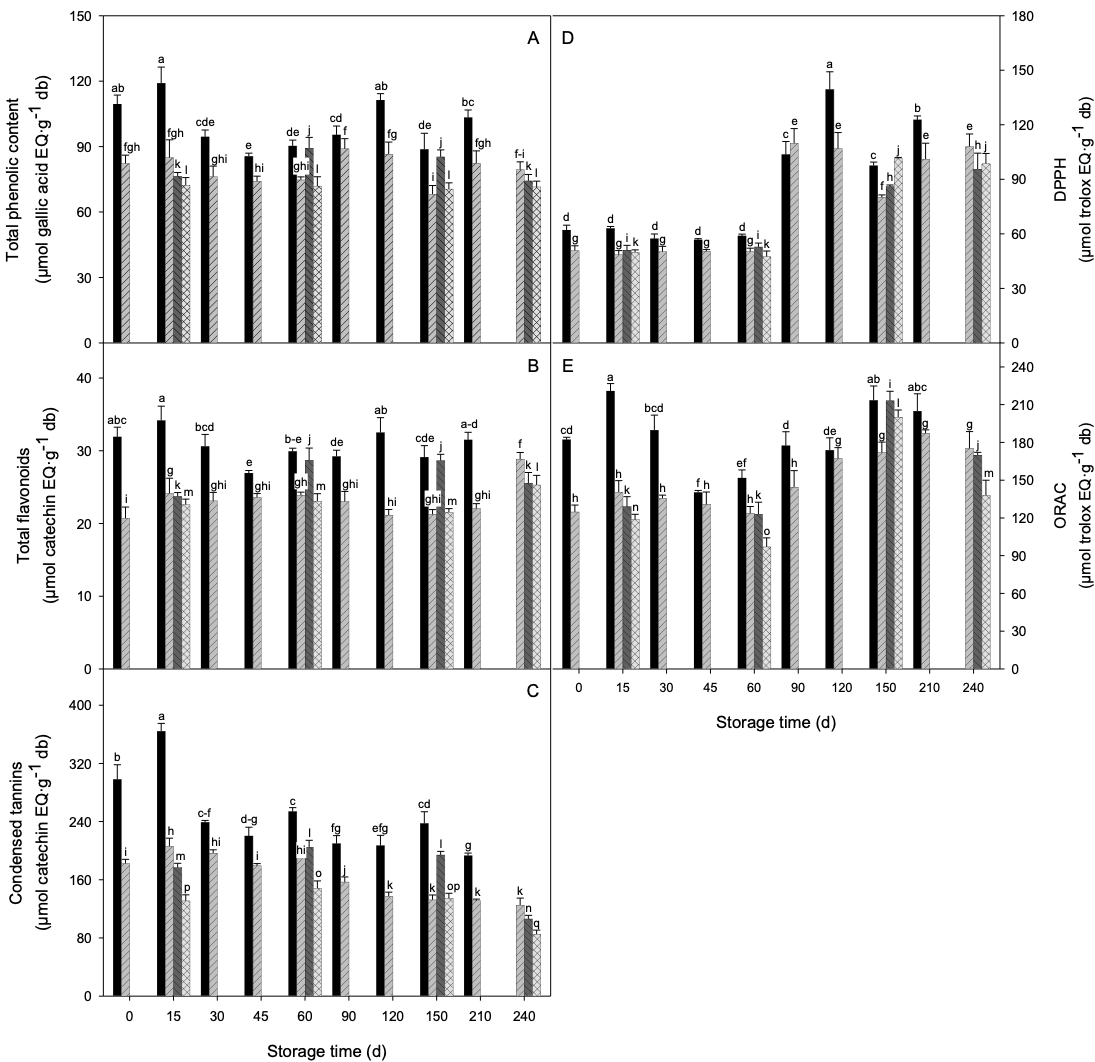 |
|
Pecan nut kernels are rich in health-promoting substances such as unsaturated fatty acids, tocopherols, and phenolic compounds. Due to their importance in the human diet, it is essential to evaluate the effects of drying, and storage temperature and time, on these phytochemicals. Moisture, water activity, lipid content, bioactive compounds concentration, and antioxidant capacity of wet and dry pecan nuts (Western variety) were determined. Then kernels and in-shell nuts were stored (240 days) at 4°C and 25°C, monitoring the changes in tocopherols concentration, phenolic content, and antioxidant capacity. Wet and dry kernels exhibited similar fatty acids profile and γ-tocopherol concentration (20.37±0.73 and 19.27±1.62 mg·100 g-1 kernels in dry basis), whereas phenolic content and antioxidant capacity decreased due to the drying process (33.2 and 22.3%, respectively). Throughout storage, condensed tannins concentration of kernels and in-shell nuts reduced by 31.5 and 41.8%, while DPPH antioxidant capacity improved 216.4 and 188.4%, respectively. These results evidenced that drying and storage time are the most significant variables regarding pecan nuts postharvest processing; nonetheless, further research related to the relationship between condensed tannins degradation and the increments in DPPH antioxidant capacity is needed.
Keywords: Pecan nuts, storage, phenolic compounds, antioxidant capacity.
|
|
 |

